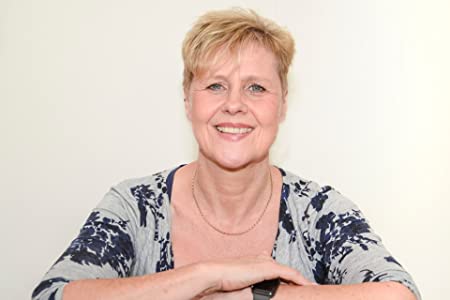'Cluster feeding' isn’t a thing - I’m a former midwife, and here’s why it's not just about your milk
Cluster feeding isn't a thing. Find out why...


Parenting advice, hot topics, best buys and family finance tips delivered straight to your inbox.
You are now subscribed
Your newsletter sign-up was successful
Cluster feeding isn't a thing, it should be called cluster soothing, says former midwife Rachel Fitz-Desorgher.
Breastfeeding moms are not imagining the baby's behavior - the constant need for the baby to go on the boob is a thing. But it's not always just for feeding. Cluster feeding is a term often used when babies specifically feed more frequently and for shorter durations than usual, typically in the evening or late afternoon. Many parents attribute this behavior to the baby's hunger or a sudden increase in milk demand. However the term 'cluster feeding' is misleading and does not fully describe what is happening.
Many mothers try to breastfeed in the beginning, sometimes instead opting for a breast pump to help for many various reasons, or going on to enjoy a glorious breastfeeding journey up to 9 months and beyond. And, while I get it, this is new to you, it’s not new to your body. The female human body has evolved over the years to know exactly what it’s doing, you just need to trust yourself and your baby a bit more.
And one thing to help with this trust is forgetting everything you think you know. Including the term ‘cluster feeding’. The UK has the lowest rate of breastfeeding in the world and I think one of the reasons may be down to this terminology, and here’s why…
Cluster feeding isn’t a thing - it should be cluster soothing
England and France are two of the few countries to use the words breast and feeding together.? And that term alone has all of these heavy ‘must do’ connotations. When actually, it’s not just about feeding. In some other parts of the world, the word breastfeeding doesn’t exist, in Germany, for instance, when you put a baby up your t-shirt it’s called ‘schtillen’, which means ‘to calm’, same in Turkish it’s ‘to soothe’, in Eastern Europe they say ‘to boob’ they don’t talk about it in terms of feeding.
I know many new mothers will have been told about cluster feeding, warned that baby will no doubt feed nonstop on and off in a ‘cluster’ fashion. And this is one of the many reasons I believe the UK has the worst breastfeeding rates in the world. The very word ‘breastfeeding’ suggests that every time the baby wants to go to the boob they’re hungry - and of course, they’re always wanting to go to the boob so it’s no wonder many midwives tell mothers that their baby is hungry. One of the most common reasons for women giving up breastfeeding in the UK is that they think that they don’t have enough milk, that their baby is always hungry, and that there’s a problem.
When, in actual fact and from an evolutionary point of view, the reason the baby gives rooting messages is that they need soothing, these signs say ‘soothe me’ and can look like;
Parenting advice, hot topics, best buys and family finance tips delivered straight to your inbox.
- Fist goes in the mouth
- Legs go up and down
- They turn their head
And while these responses can be triggered by low blood sugar in baby, it’s very rare to reach that point with a breastfed baby - they are on the boob all the time so they very rarely experience thirst or hunger.
But feeling cold from a sheer lack of physical contact speaks to the primitive part of the baby’s brain, especially in the 4th trimester, and triggers the baby to display these behaviors. And for the highly-evolved female human these trigger an automatic response and even if people say ‘don’t keep picking the baby up’ you feel compelled to and that is an evolutionary very primitive thing, it isn’t a thought response.
One of the most common reasons for women giving up breastfeeding in the UK is that they think that they don’t have enough milk
Why do babies show signs they’re hungry then?
To make you put them to the boob. And the reason why the baby will do things to make you put them to the boob is that, according to recent studies, suckling on the boob protects the baby against SIDS, infection, hypothermia, and of course the baby - who is able to turn your milk flow on at will - is able to get little suckles of milk while they’re there.
Babies don’t take the milk because they’re ‘always hungry’, they take the milk because of what’s in it; endorphins which calm the baby down. Newborn babies can have what is known as ‘gut spasms’. There are brought about by certain hormones, which are present when the baby is out of physical contact with the mother, causing intestinal spasms. This is why you see things like ‘reflux’. Basically, the boob is where baby feels safest, and they need their mother to survive. We, as humans, automatically put them to the boob as we’re highly evolved to do that, you can of course also do non-boob soothing.
So what does the term cluster feeding mean?
It's a phrase that was coined 20 years ago, predominantly brought about by England's leading charity for parents, the National Childbirth Trust (NCT) to reassure mums that evening suckling is normal and that they feed at those times to ‘fill up and sleep longer at night’. And while it does tend to happen at certain times of the evening. Between the hours of 5pm-midnight and 2-4 am. And the reason a baby needs to be on you at these times is that going back to primitive times, these were the darkest and considered the ‘danger times’ and any baby that wasn’t securely in arms and silent on the breast is likely to have been taken by stalking animals. The safest baby would have been the one snuggled in tightly at the boob during these dark hours. And so it is a hangover from these primitive times.
This isn’t how babies work, ‘filling up’ to sleep through the night is a myth. But mums feed to fill up (or so they think) and then when baby doesn’t ‘sleep all night’ (because it’s not supposed to) mums tend to think they don’t have enough milk and end up topping up with a bottle because they think they’re still hungry when they’re not.

What about when the milk ‘dries up’?
Many mums tell me they ‘want to cluster feed but I have no milk left, I know because when I squeeze my boobs nothing comes out’. And while that perception isn’t wrong, it doesn’t mean milk has dried up. The human body is hugely evolved to not produce milk constantly when the baby wants to suckle most - i.e what is recognized as ‘cluster feeding times’ the female body has less stored-up milk, and our boobs are softer to not overfeed the baby at a time when they want to suckle for comfort. However, if the baby wants milk at those times the baby can release it themselves - they are evolved to know what to do with your boob to produce a ‘let down’ of milk. What the baby does sends signals to our anterior pituitary gland which immediately sends a splurge of hormones to produce milk. Women’s bodies are miraculous.
Babies suckle for comfort during these times, and when mums are told ‘Don’t keep them on the boob they’re using you like a dummy’ well yes, they are. That’s what they’re supposed to do during these times. Also, many mums claim that babies prefer one boob to the other, and this is true. There is one boob that lets out milk easier than the other that baby will prefer when hungry, and there’s the other that I call ‘the bed boob’. The bed boob is the one the baby wants to go on to snuggle into or suckle at all night as it doesn’t release milk as freely.
Other experts agree
A lot of midwives and doctors have offered opinions on Cluster feeding; “[but] there are little to no studies around to back anything up”, International Postnatal Practitioner and Certified Breastfeeding Specialist, Philippa Murphy says, in agreement.
In her blog, she says, “Babies don’t ‘space feed closer together at certain times of the day’ we space feed them. I can hear some of you say, but they do as they tell us by their cues that they are hungry again. Cues like rooting, sucking on hands, nuzzling the breast, crying, screaming, and not wanting to be put down.
“These can indeed be hunger cues, and the common belief is that by cluster feeding you are ‘cue feeding,’ as some define it, which sounds great right - we all want to nurture alongside what our newborn is telling us. To offer responsive care that fulfills their needs. But what if those cues are being mistaught?”
She goes on to add; “One of the instinctive reasons a baby roots to suck is to enable relaxation when they feel discomfort in the digestive tract. Sucking is nature’s gift and their natural medicine to help them obtain calm."
In addition, midwife Lesley Bland says; “Research in [cluster feeding] is almost non-existent, and as such we should also consider other theories about cluster feeding, including a consideration that baby may be displaying signs of tummy pain rather than hunger. If your baby appears to be in pain, is pulling their knees up, clenching their fists, not settling with a feed, is crying for long periods, has a fever, or has any other symptoms of being unwell then we would advise you seek advice from your midwife or doctor.”
Several studies have looked at the feeding patterns of breastfed babies and found that frequent feeding is a normal and healthy behavior. One study found that babies may feed up to 14 times in 24 hours, with no correlation between feeding frequency and milk supply. Another study found that frequent feeding in the early weeks of life is associated with higher milk production and weight gain in babies.
It's essential for parents to understand that frequent feeding is not an indication of low milk supply or a problem with breastfeeding. It's a natural behavior that can help establish and maintain milk supply and promote bonding between mother and baby. To support breastfeeding parents, it's crucial to provide accurate information and avoid using misleading or stigmatizing language. Instead of referring to cluster feeding, it may be more helpful to use terms like ‘cluster soothing’ or ‘cluster suckling’, and hopefully we’ll see an increase in breastfeeding.
What moms say
Goodto.com spoke to lots of moms to get their take on this controversial subject. Some were so grateful to read that it wasn't them failing with 'low milk flow'. Mom-of-two Louisa tells us; "My daughter was constantly on the boob so I felt like she was never full, because otherwise why did she keep going back? To hear that it's not always about feeding made me feel... well, relieved."
While other moms felt anger at this suggestion; "[Moms] are just trying to do their best so when I hear that what I'm killing myself doing every single day 'isn't a thing' I'm furious at the suggestion, " mom-of-two, Jas tells us. And we get that we do. All parents are just trying to do their best for their children with the knowledge they have at the time.
Mom-of-one Sam tells us; "I'm a firm believer in 'know better do better', and this article made me realise that other insight is always helpful. Especially when that insight doesn't make me feel like a failure as a breastfeeding mother." While Mom-of-one, Kat says; "I'm just glad that I have a reason to tell my mother-in-law when she makes a comment about my baby 'going back on the boob, again? He's only just been fed.' Now I can educate her firmly on the fact that it's not just about feeding... it's comfort. So thanks for that, Goodto!"
Related features:
- Breastmilk storage
- Breastfeeding Vs Breast pumping
- Leaky and sensitive boobs during sex? Here's what to do
Video of the Week:

Rachel Fitz-Desorgher is a leading, internationally-known baby expert, and parenting mentor. Having worked for over 30 years as a midwife, infant feeding specialist, active birth teacher and parenting consultant, she published her first book, Your Baby Skin To Skin in 2017 and it quickly gathered five-star status with its reviewers. Rachel Fitz-Desorgher has has been featured in several articles for publications including The Daily Mail, The Independent, The Express and Yahoo Lifestyle. She's also a regular contributor for Mother&Baby. When not writing, Rachel runs workshops and presentations on how evolution impacts on baby and parent behaviour, and mentors executive women transitioning from the corporate life to motherhood.